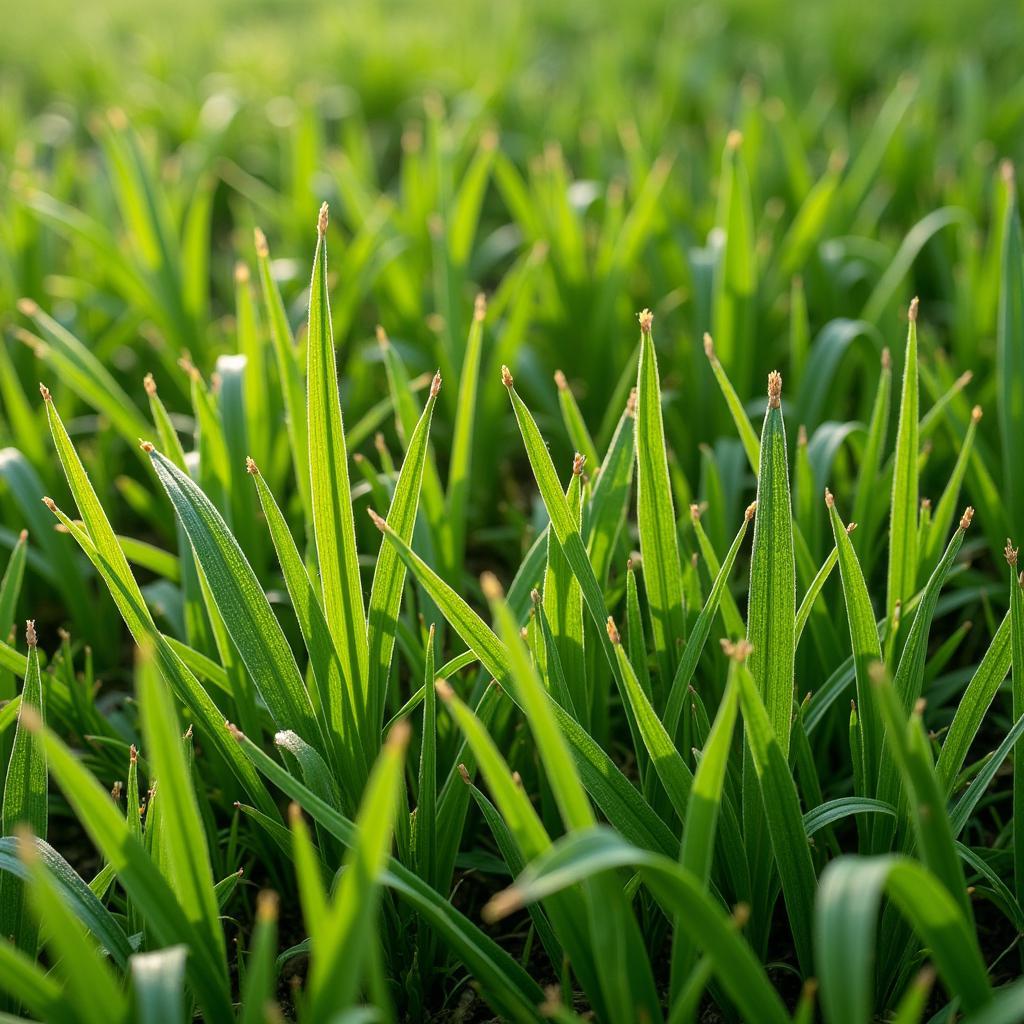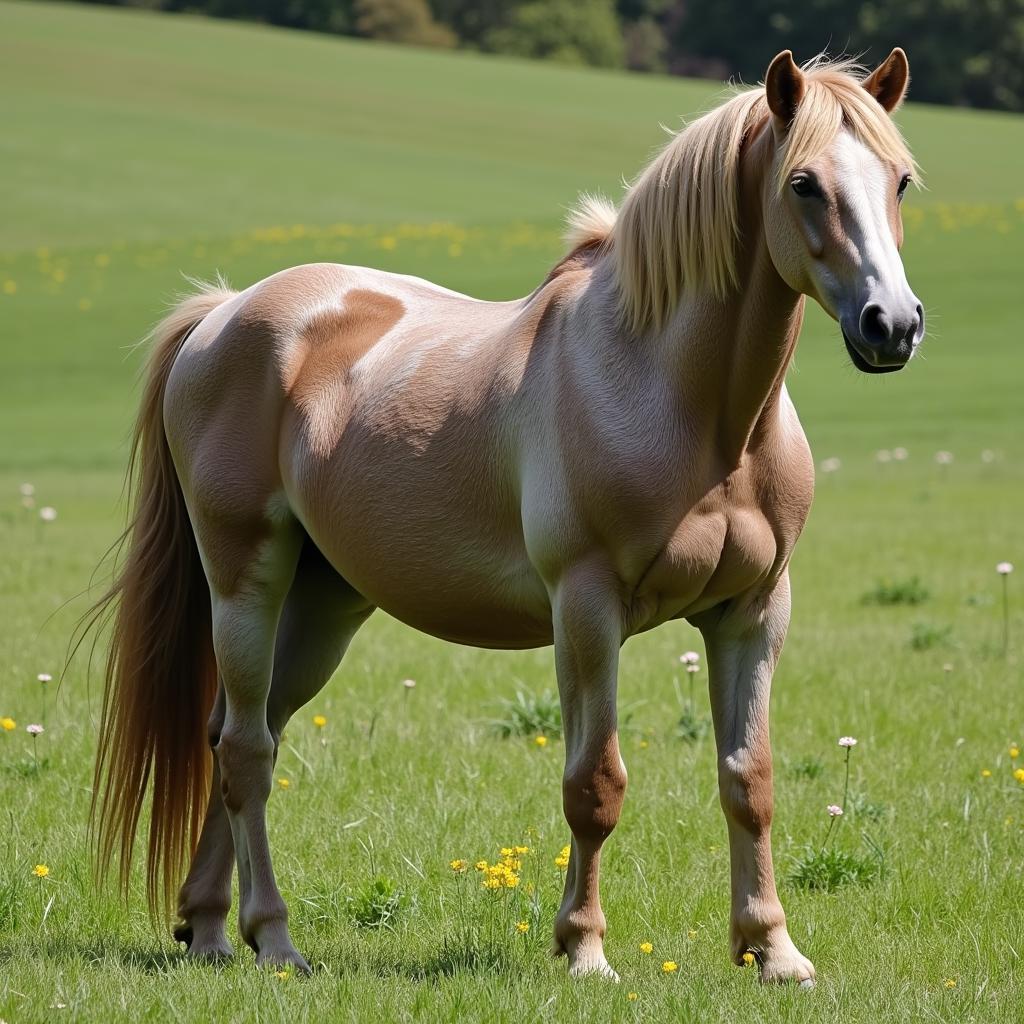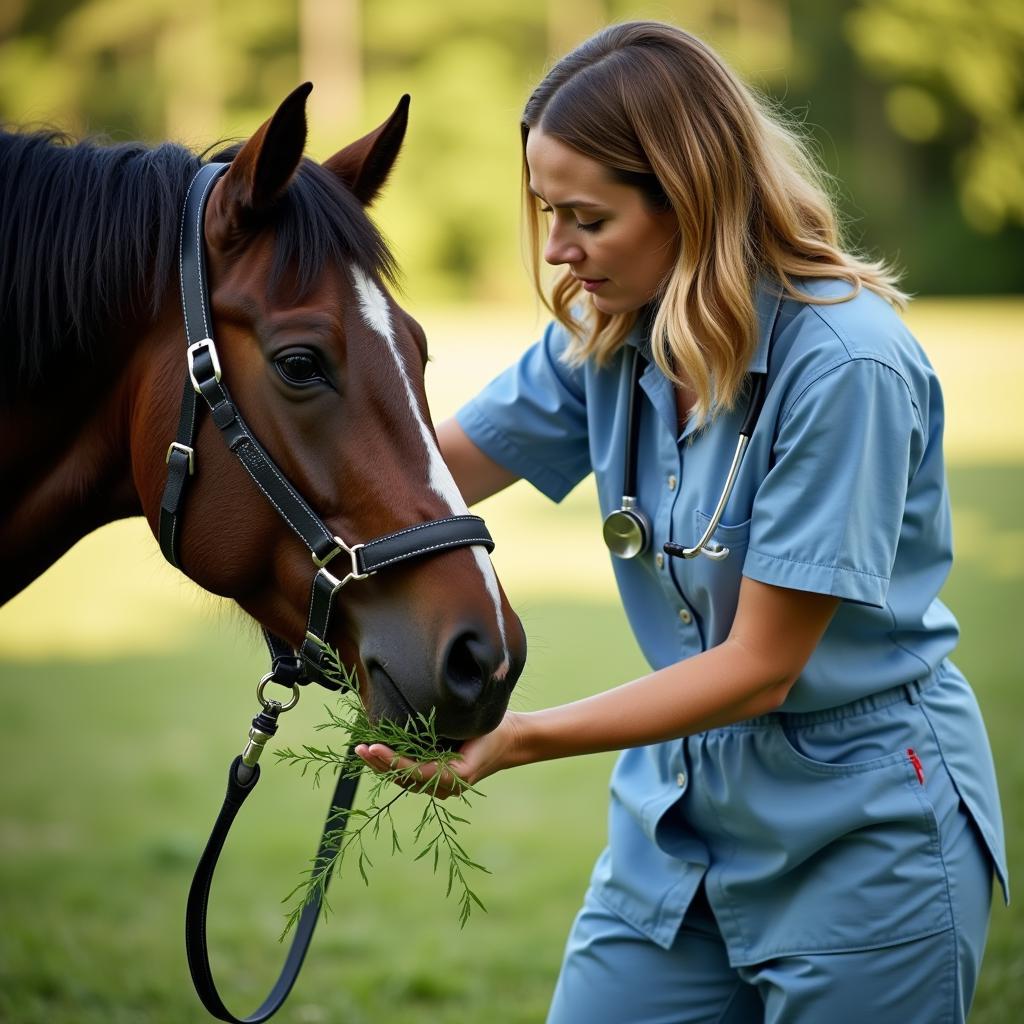Fescue hay is a popular choice for horse owners due to its affordability and availability. But Is Fescue Hay Good For Horses? The answer isn’t so simple. While fescue is a hardy and adaptable grass, certain types of fescue hay can pose health risks to horses, particularly pregnant mares. Let’s explore the pros and cons of feeding fescue hay to horses.
Understanding Fescue Grass
Fescue is a cool-season perennial grass that thrives in various climates. It’s known for its hardiness, drought tolerance, and ability to withstand heavy grazing. There are many types of fescue, but the one that causes the most concern for horse owners is tall fescue infected with a specific fungus called endophyte.
The Endophyte Problem: Why Fescue Can Be Harmful
The endophyte fungus (Epichloë coenophiala) that infects tall fescue produces a compound called ergovaline. Ergovaline is a type of ergot alkaloid that acts as a vasoconstrictor, meaning it narrows blood vessels. This constriction can have serious consequences for horses, especially pregnant mares in their last trimester.
 Close-up of fescue fungus
Close-up of fescue fungus
Health Risks of Fescue for Horses
Here are some of the health issues associated with fescue toxicosis in horses:
- Pregnant Mares: Ergovaline can disrupt blood flow to the placenta, leading to:
- Prolonged gestation
- Difficult births
- Retained placentas
- Weak or stillborn foals
- Reduced milk production (agalactia)
- Other Horses: While less common, fescue toxicosis can also cause problems in other horses, including:
- Poor weight gain or weight loss
- Rough hair coat
- Increased susceptibility to heat stress
- Laminitis (inflammation of the hoof)
Identifying Fescue Toxicity in Horses
Recognizing the signs of fescue toxicity is crucial for timely intervention. If you notice any of the following symptoms in your horse, especially if they consume a diet primarily consisting of fescue hay, consult your veterinarian promptly:
- Decreased appetite and weight loss
- Lethargy and reduced performance
- Prolonged gestation (in mares)
- Difficulty delivering a foal
- Thickened or discolored placenta
- Reduced milk production
 Horse exhibiting signs of fescue toxicity
Horse exhibiting signs of fescue toxicity
Is All Fescue Hay Bad?
Not all fescue hay is created equal. Here’s what to consider:
- Endophyte-Infected vs. Endophyte-Free Fescue: The biggest factor is the presence of the endophyte fungus. Endophyte-free fescue hay is a safer option for horses.
- Testing for Endophyte Levels: If you are unsure about your hay, you can have it tested for ergovaline levels.
- Other Types of Fescue: Some newer varieties of tall fescue are infected with a non-toxic endophyte strain. These varieties offer the hardiness of fescue without the risks associated with ergovaline.
Tips for Managing Fescue Pastures and Hay
- Choose Endophyte-Free Varieties: When planting or purchasing hay, opt for endophyte-free fescue varieties.
- Test Your Hay: If you are unsure about the endophyte status, have your hay tested.
- Dilute Fescue Hay: Mix fescue hay with other types of hay like orchard grass, timothy, or alfalfa.
- Manage Grazing: Avoid grazing pregnant mares on tall fescue pastures, especially during the last trimester.
- Provide Supplements: Consult with your veterinarian about dietary supplements that may help mitigate the effects of ergovaline.
When in Doubt, Consult Your Veterinarian
If you have concerns about fescue hay and its potential impact on your horse’s health, consulting your veterinarian is essential. They can provide personalized advice based on your horse’s individual needs and risk factors.
 Veterinarian examining a horse for fescue toxicity
Veterinarian examining a horse for fescue toxicity
Conclusion
Fescue hay, while a common and often cost-effective option, requires careful consideration when it comes to horse feeding. The risks associated with endophyte-infected fescue, particularly for pregnant mares, necessitate proactive management. By understanding the potential dangers, opting for endophyte-free varieties or alternative hays, and seeking guidance from your veterinarian, you can ensure your horse’s well-being while incorporating fescue hay into their diet. If you need any assistance in managing your horse’s diet and health, don’t hesitate to reach out to us. You can call us at 0772127271, email us at [email protected] or visit us at QGM2+WX2, Vị Trung, Vị Thuỷ, Hậu Giang, Việt Nam. We have a dedicated team available 24/7 to assist you.